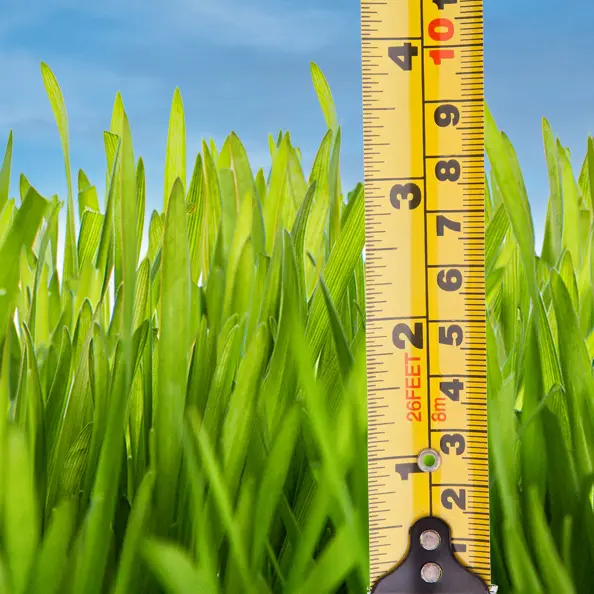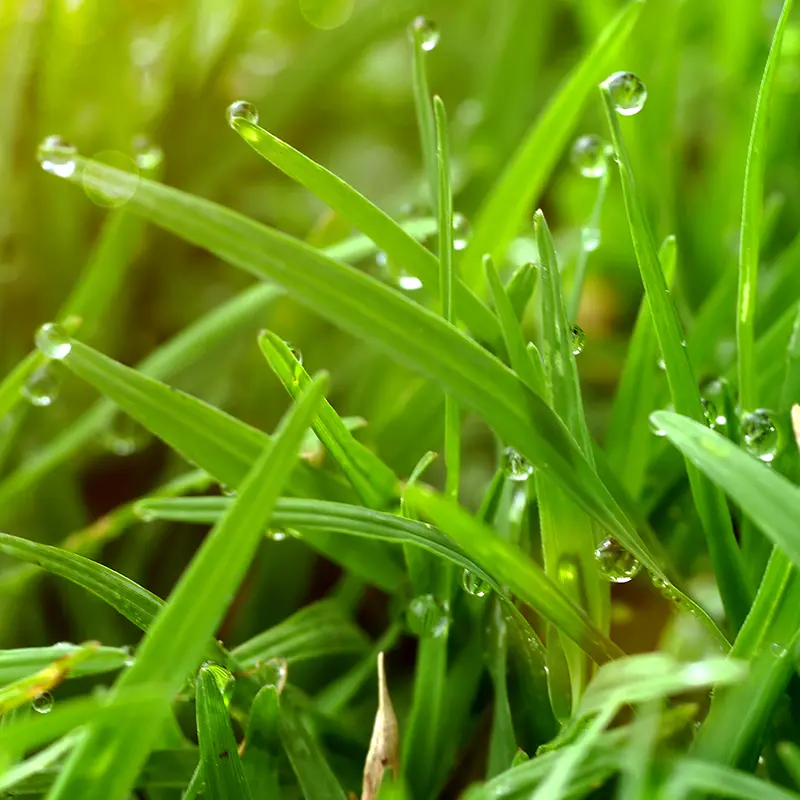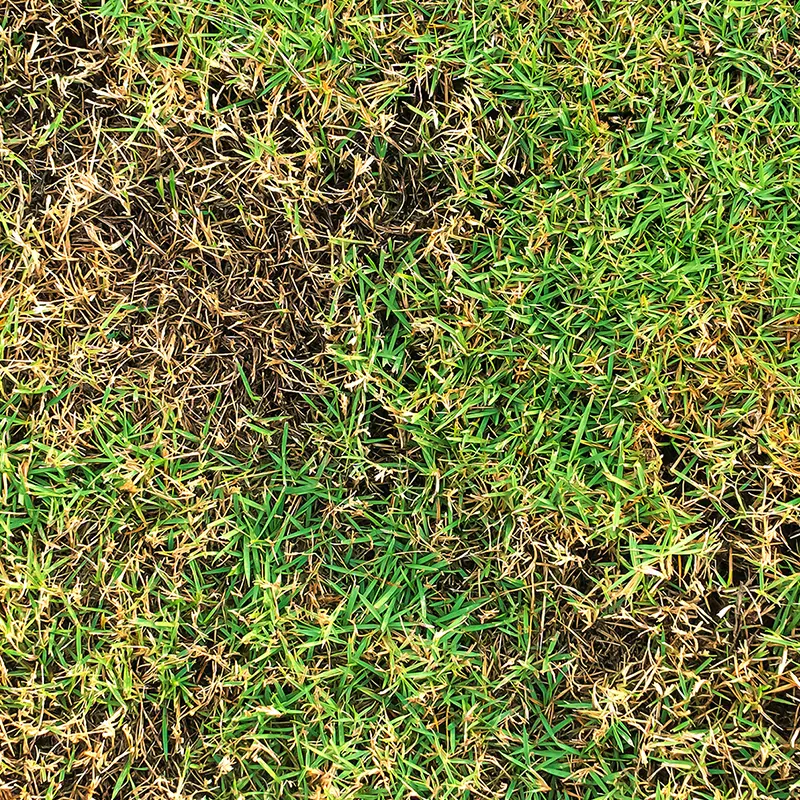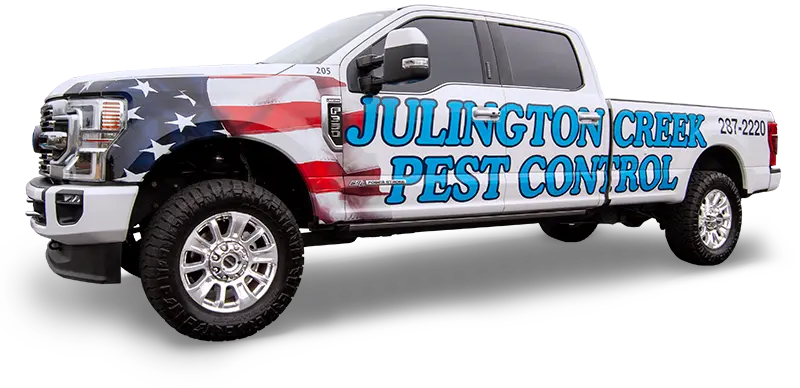
Frequently asked questions
Help us, help you.
Below are some of the most frequently asked questions which may provide answers to common issues that arise before or after our service. They may also act as a guide in in explaining how we or our technicians may best serve your needs.
- Commonly Asked
- Indoor Pest Control
- Termites
- Turf Management
- Roach droppings can trigger asthma attacks, as well as spread Salmonella and bacterial illnesses that cause diarrhea.
- Rodents have been linked to the transmission of over 35 diseases, including food-borne infections, Hantavirus, and plague.
- Fire ants can cause fatal allergic responses in some people.
- Mosquitoes spread a variety of serious disease-causing viruses, including Zika, West Nile, malaria, as well as several kinds of encephalitis.
- The three common types of termites found in Florida are the subterranean, dampwood and drywood, all of which can cause tens of thousands of dollars in damage to your home. The Formosan termite, however, is a particularly invasive subterranean termite which thrives on Florida’s moisture-rich environment, posing a substantial risk to customers in our region due in part to their massive numbers.
- Rodents chew and gnaw causing structural damage to homes and by destroying wood and other materials including the insulation on cables and electrical wires, which could result in a fire.
Julington Creek Pest Control estimates lawn and outdoor services based on the size of your lawn, as well as the treatments and seasonal requirements unique to your situation. To us, there is no one size fits all. Every lawn has different needs and by having one of our specially-trained technicians come out to review your property we can assure you receive only the services you need.
No. As long as you are part of our recurring service program, if you have any issues we offer return service at no additional charge.
Your card will be charged at the time of service.
Florida’s warm, moderate environment is the ideal home for a wide range of pests. Ants, spiders, termites, fleas, ticks, roaches, earwigs, silverfish, and millipedes are the most common unwanted guests found in client homes and businesses.
Our offence is your best defense to keeping pests out of your home or business. With so many varieties of Florida pests, issues can quickly get out of control, that’s why regularly scheduled service appointments are essential. At each service visit our highly-trained technicians look for early warning signs of pests, we can get work resolving any issues that they detect.
This is one of the great benefits of maintaining regularly scheduled appointments! Once we’ve treated the interior of your home during our initial visit, our outside treatments can work to prevent pests from ever even entering. If you do pests after any infestations have been resolved, let us know and we will schedule a retreatment.
No. As long as you are part of our recurring service program, if you have any issues we offer return service at no additional charge.
Termites are small, soft-bodied and dwell in vast colonies consuming various types of wood, including lumber and building materials. Drywood, dampwood, and subterranean are the three main kinds. Subterranean termites rely on moisture in the soil, whereas drywood termites choose extremely dry wood and dampwood termites favor moist wood, such as that found in wet environments. While subterranean termites require dirt as a source of moisture, they have no issue inhabiting homes and structures. Subterranean termites are by far the most common termites in our area and a particular threat due to the sheer size of their populations.
Termites are often confused for flying ants. They both have four wings; however, flying ants have bigger wings at the front whereas termite wings are consistent in size. Termites often measure between one quarter to a half inch long and vary in color from shades of white, brown to black and have straight antennae.
Although each species has its unique swarming season, termites are most active in the spring when they are ready to reproduce. The Formosan subterranean termite, swarms at night when it is cooler outside. If you should see swarming termites, contact us right away for an evaluation.
Just seeing termites doesn’t necessarily mean that there has been damage as a result. But a thorough inspection by one of our specially trained technicians can help determine whether your home is a risk. Use the link below to schedule a free, no-obligation evaluation if you believe you have termites.
There are three common types of termite treatment, soil/barrier, baiting and fumigation. Depending on your unique needs, any or all these methods may be required in combination to properly address the problem. At Julington Creek Pest Control we do not treat for dry wood or damp wood termites and do not offer fumigation.
Getting rid of the moisture that termites require is the essential to prevention. Work to lower humidity levels in crawl and attic space, install gutters to direct water away from your foundations, and remove standing water from repair leaky pipes, faucets, or outdoor air conditioning units. Remove decaying wood such as tree trunks, roots, wood stakes, and fence boards from around the property can also help. Lastly, check the foundation of your home and property regularly for any signs of termite damage.
Other than preventative steps, homeowners shouldn’t try to handle termite control all on their own. Julington Creek Pest Control’s termite treatment specialists have the knowledge, in-depth training, tools, and resources necessary to efficiently manage your termite infestation, safeguarding your family and property.
Yes we can! Often when refinancing or purchasing a home, the mortgage company requires an inspection be completed for wood-destroying organisms (WDO). This is a visual inspection for possible termite or other WDO activity performed by an authorized agent like Julington Creek Pest Control. After inspection, we complete a WDO report and email you a signed copy for distribution back to your mortgage lender.
No. Julington Creek Pest Control estimates lawn and outdoor services based on the size of your lawn, as well as the treatments and seasonal requirements unique to your situation. To us, there is no one size fits all. Every lawn has different needs and by having one of our specially trained technicians come out to review your property we can assure you receive only the services you need.
Depending on your lawn’s needs, we may employ a variety of customized products. However, it is our standard practice to apply a high-quality granular fertilizer to lawns 3 times annually. For shrubs, trees, and ornamental customers we treat with granular fertilizer twice over the course of the year. Many of our competitors don’t use granular fertilizer at all, and the ones that do often only use it once per year.
We recommend waiting 1 hour or until the lawn is dry.
Our products are designed to work in our wet environment. We will never perform an application if we feel its effectiveness will be compromised by weather.
There are many factors that impact how quickly and well weed treatments can work. Ultimately it depends on how severe the problem is to begin with. It will take time to get rid of weeds, especially more difficult types that need several treatments. That why our offence is your best defense in keeping up with the worst weeds and maintaining a healthy grass. And if weeds do take hold, early treatment means the faster you will see results.
Mushrooms occur naturally and cannot be prevented. In fact, during periods of excessive rain mushrooms often pop up in areas due to encouraged microbial activity and moisture in the soil where there is decaying wood or root systems from former trees. They do not pose a problem to the lawn. In fact, they can be an indicator that the soil in your lawn is healthy and rich in nutrient. Once the area dries out most often the mushrooms will disappear.
Moles cannot be completely prevented with regular lawn service alone. If moles present an ongoing issue, we offer mole repellant applications at an additional charge.
No, we will come out to re-treat any lawn or ornamental issues if you are part of our recurring lawn service program (every six weeks) or lawn and shrub program (monthly).
Customer Support
Thank you for visiting our help center. Our first priority is serving you! If you cannot find the answer to your issue here and would like to schedule a call back or visit, please complete the form request below and we will route you to the right team member to best help you.
Reference Center

Caring for your lawn
Pest control and fertilizer treatments are most effective when done in conjunction with the proper lawn care. Read our recommendations for appropriate mowing and watering to help ensure a greener, healthier lawn.

Common Lawn Issues – Part 1
Despite regular treatment and your best efforts, issues brought on by inadequate or overwatering could be a reason your lawn is suffering. Part one of our Common Lawn Issues reviews signs you may have a watering problem.

Common Lawn Issues – Part 2
In part two of our Common Lawn Issues we review some of the most common pests in our area, what to look for and how your regular maintenance can be a contributing factor to these problems.

